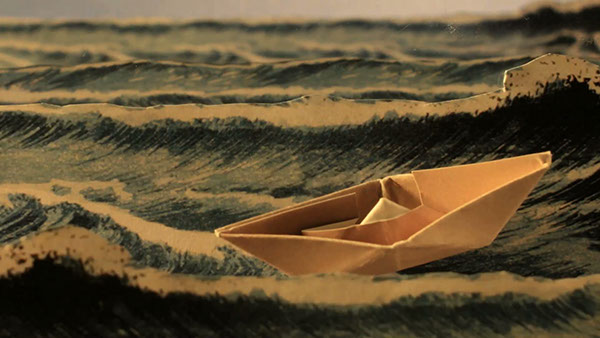aNewDomain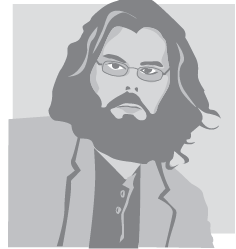 — After I moved to the U.S. from the UK, I worked at a library for awhile. God, a long time ago. My job was to put barcodes in the books, scan them, enter data. We were building a database, modernizing from Dewy Decimal and racks of cards.
— After I moved to the U.S. from the UK, I worked at a library for awhile. God, a long time ago. My job was to put barcodes in the books, scan them, enter data. We were building a database, modernizing from Dewy Decimal and racks of cards.
Because I had to handle every book in the place, I was exposed to some stuff I wouldn’t normally go looking for. I read about cultural anthropology, about the iridium layer that offered evidence for a mass extinction caused by a comet impact, more. One of the books that passed through my hands and then ended up coming home with me was The Man Who Mistook His Wife for a Hat.
Sacks hooked me. Hard.
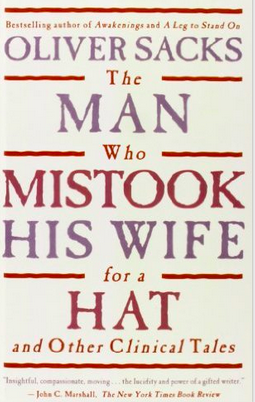 These were freakshow stories, maybe: look at these differences! Be amazed! But the stories were told with a reverence, a respect, a quiet human dignity. I was caught especially by the story of the Lost Mariner: a man who experienced total memory loss due to Korsakov syndrome. Sacks helped me not only marvel at the amazing capacity we have for memory, to internalize the world and build models of it, but to wonder:
These were freakshow stories, maybe: look at these differences! Be amazed! But the stories were told with a reverence, a respect, a quiet human dignity. I was caught especially by the story of the Lost Mariner: a man who experienced total memory loss due to Korsakov syndrome. Sacks helped me not only marvel at the amazing capacity we have for memory, to internalize the world and build models of it, but to wonder:
There but for the grace of God go I. What if I went there? What must it be like for the lost mariner to live out his life in a sea of disconnected moments? To draw meaning from the context of each emerging moment, uninformed by those that had passed already?
A human experience.
I’ve had to work hard to acquire functional empathy, to relate to people in a human way. That’s sometimes a gift, sometimes a burden. An alienated life is a hard life in so many respects. But that’s what Sacks did: humanize life. Un-alienate people.
Okay, he did it abstractly, between the covers of books. But those books touched people. So many of us in the psychology community have read these books and been informed by them – used them to inform our philosophy, our sense of empathy, our compassion.
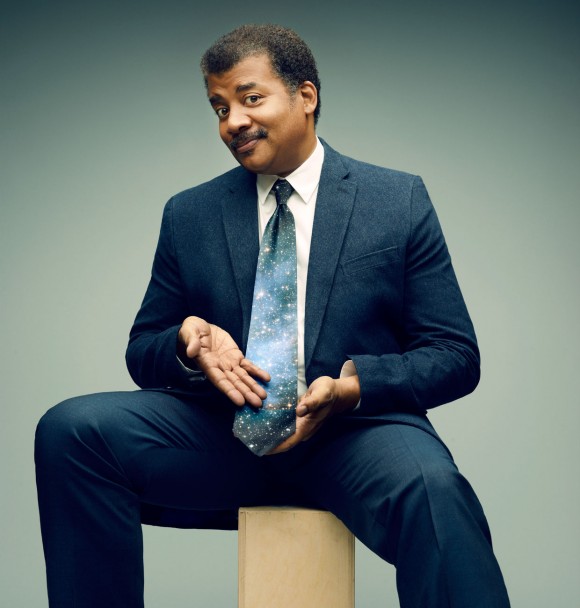 The days of the celebrity scientist are over, or nearly so. We have Michio Kaku, Neil DeGrasse Tyson, a few others. None of them have the stature or status of an Albert Einstein or a Carl Sagan. We just have too many channels on the TV, too many blogs and papers and individual Fakesbook screens to stare at.
The days of the celebrity scientist are over, or nearly so. We have Michio Kaku, Neil DeGrasse Tyson, a few others. None of them have the stature or status of an Albert Einstein or a Carl Sagan. We just have too many channels on the TV, too many blogs and papers and individual Fakesbook screens to stare at.
Sacks, though, is hardly anonymous. He’s known in medicine, psychology, psychiatry, music, social studies, a dozen fields for a dozen projects. His work spans across what we know about people, from neurology to art, from aging and memory to perception to … well, everything, really.
And in all that work, the common thread is his humility, ultimately: that could have been me. And because he knows it could have been him, because of his compassion for the people whose stories he tells, we know it could have been us.
To the extent that I do any good in the world, I have to credit Sacks. To the extent I have learned any functional empathy, I have to credit Sacks. To the extent that I have found a way to work with people in extreme states, with backgrounds of bad behavior, with no means of doing talking therapies, I have to credit Sacks.
He didn’t do it all for me.
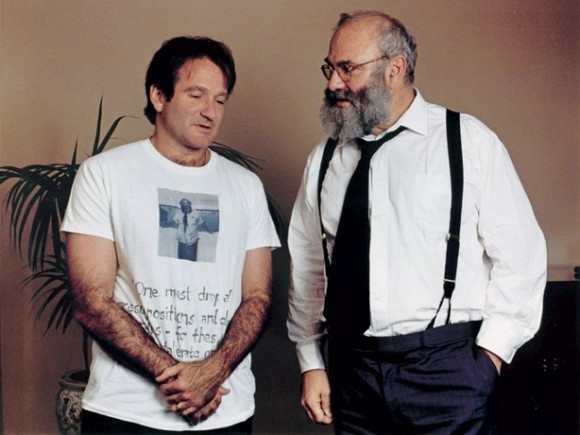 One book at the beginning of the 1990s, the film about locked-in people awakening, all the books in between – they didn’t make me. Didn’t make any of us.
One book at the beginning of the 1990s, the film about locked-in people awakening, all the books in between – they didn’t make me. Didn’t make any of us.
But they were bricks, sometimes foundational bricks. They helped us turn our science away from studying disorders to studying people, from trying to figure out what is wrong with people to trying to understand the experience of people.
You’ve seen Sacks’ own stirring acceptance of his cancer, read his work. All that is left is to say goodbye.
RIP Oliver Sacks. And goodbye, Oliver. Thanks for the good you did down here on Planet Earth.
For aNewDomain, I’m Jason Dias.
Cover image: Behance.net, All Rights Reserved; image one: Amazon; image two: ThePlusOnes.com, All Rights Reserved; image three: VanityFair.com, All Rights Reserved.

